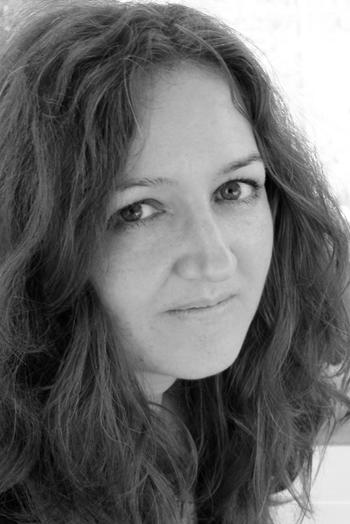Dr. Krisztina Szilágyi
Krisztina Szilágyi is research associate at the Faculty of Asian and Middle Eastern Studies, University of Cambridge. She received her Ph.D. from Princeton University. Prior to that, she studied Arabic and Jewish Studies in Budapest, Damascus and Jerusalem. Her main interest lies in the interactions between Christians, Jews and Muslims in the medieval Islamic world, in particular as reflected in polemical literature. Her publications include “Christian Learning about Islam in the Early ‘Abbāsid Caliphate: The Muslim Sources of the Disputation of the Monk Abraham of Tiberias,” in The Place to Go: Contexts of Learning in Baghdād, 750-1000 C.E., ed. Jens Scheiner and Damien Janos (Princeton, N.J.: Darwin Press, 2014), pp. 267-342, “A Prophet like Jesus? The First Christian Polemical Narratives of Muḥammad’s Death and Their Muslim Sources,” Jerusalem Studies in Arabic and Islam 36 (2009): 131-171, and “Christian Books in Jewish Libraries: Fragments of Christian Arabic Writings from the Cairo Genizah,” Ginzei Qedem 2 (2006): 107-162.
Religious Debates in the Medieval Middle East
Discussions of religious topics were a common feature of life in the medieval Middle East, in both spontaneous and organized form. Muslim notables, even caliphs, sometimes entertained and educated themselves with sessions of religious debates. For such occasions they occasionally invited not only Muslims of various theological persuasions, but others as well: Jews, Christians, Zoroastrians and materialists. These encounters left manifold traces in the literary record, often as texts claiming to be straightforward reports of them.
In this course, we will study the phenomenon of debating religion in the medieval Middle East through accounts of disputations and other relevant primary sources written by Muslims, Jews and Christians. We will discuss, among other general matters, the social and intellectual context of the debates, and the technique and the education of the disputants as represented in the texts. We will devote several sessions to examining specific topics recurrent in the primary sources, such as the criteria of the true religion, the nature of God, sexual ethics and rituals. We will conclude with a glance at the changes first modernity and westernization, and more recently globalization and online communication wrought on debating religion.
Introductory Literature:
Primary sources
Michael Cook, “Ibn Sa‘dī on Truth-Blindness,” Jerusalem Studies in Arabic and Islam 33 (2007), pp. 169-78. In Arabic: al-Ḥumaydī, Jadhwat al-muqtabis, ed. Muḥammad b. Tāwīt al-Ṭanjī (Cairo, 1952), pp. 101-102.
David Thomas, “Two Muslim-Christian Debates from the Early Shī‘ite Tradition,” Journal of Semitic Studies 33 (1988), pp. 53-80. In Arabic: Ibn Bābawayh, Kitāb al-tawḥīd, ed. Hāshim al-Ḥusaynī l-Ṭihrānī (Tehran, 1387/1967), pp. 270-75, 417-27 (chs. 37 and 65).
Krisztina Szilágyi, “Chapter Three: The Disputation of the Monk Abraham of Tiberias,” in S. Noble and A. Treiger (eds.), The Orthodox Church in the Arab World (700-1700): An Anthology of Sources (DeKalb, Ill., 2014), pp. 90-111, 300-308. In Arabic: Le Dialogue d’Abraham de Tibériade avec ‘Abd al-Raḥmān al-Hāšimī à Jérusalem vers 820, ed. Giacinto Būlus Marcuzzo (Rome 1986), pp. 264-95, 299-369, 503-33.
Scholarly literature
Sidney H. Griffith, “The Monk in the Emir’s Majlis: Reflections on a Popular Genre of Christian Literary Apologetics in Arabic in the Early Islamic Period,” in Hava Lazarus-Yafeh et al. (ed.), The Majlis: Interreligious Encounters in Medieval Islam (Wiesbaden 1999), pp. 13-65.
Sarah Stroumsa, “Jewish Polemics against Islam and Christianity in the Light of Judaeo-Arabic Texts,” in Norman Golb (ed.), Judaeo-Arabic Studies: Proceedings of the Founding Conference of the Society for Judaeo-Arabic Studies (Amsterdam, 1997) pp. 241-50.
Hava Lazarus-Yafeh et al. (ed.), The Majlis: Interreligious Encounters in Medieval Islam (Wiesbaden, 1999).
Hava Lazarus-Yafeh, Intertwined Worlds: Medieval Islam and Bible Criticism (Princeton, N.J., 1992).
